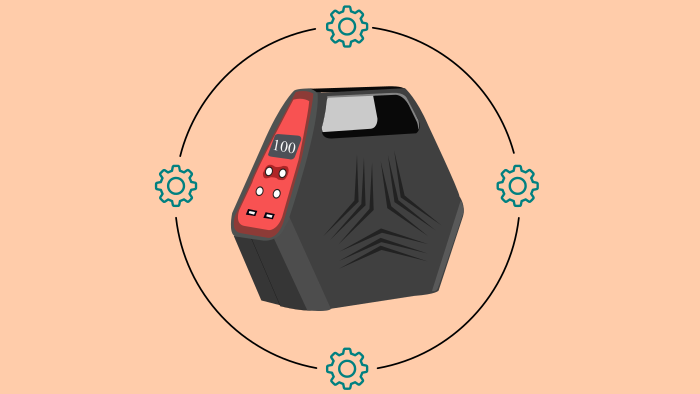The use of generators is varied, such as for homes in case of power failure, for recreational activities such as camping, RVing, tailgating, outdoor games, musical concerts, and for businesses which do not have utility supply lines like food trailers, food trucks, welding, and construction sites.
The generator is a useful product that provides a great deal of comfort in terms of power supply. The generator can be used for many purposes, including cooking, entertainment, heaters, air conditioners, and many more.
However, if the generator is not used properly, it can also be dangerous. Now the question arises: How to safely use a portable generator? In this article, we will try to answer this question and explain the safety precautions you should take while using the generator.
Here are some tips on how to use a generator safely.
Keep Generators away from enclosed Spaces

Never use a generator in your room, apartment or closed spaces, and even put the generator far away from the window to prevent carbon monoxide fumes from entering the house, which can be fatal if the levels are high. Carbon monoxide fumes do not smell.
If you experience dizziness and difficulty breathing, go outside immediately and if the situation does not improve,
contact your doctor. In order for the generator to function properly, an area where carbon monoxide fumes can enter directly into the air should be chosen.
Several generators come with a co sensor, which detects the level of co around the unit and shuts it off automatically at dangerous levels, so they can be used indoors. You can also install a CO alarm that notifies you of high levels of CO.
However, it is not recommended to use a generator indoors. For use in an enclosed space such as an apartment, you should invest in a lithium powered power station, which you can view here.
Don’t Use In Wet Condition
Don’t put water on the generator and keep it dry before use. Also, never touch it with wet hands. Do not use the generator in wet conditions or on wet surfaces.
Don’t use a generator when it’s raining, but if necessary, cover it from top so it doesn’t get wet if it’s raining. You should use it in a canopy away from your home.

Use A Proper Transfer Switch

Install a transfer switch on the main panel, either an automatic or manual switch. First, disconnect the grid from your home circuit panel and connect it to the generator if there is no transfer switch.
If the electricity generated by the generator is returned to the grid, it may harm those who work on grid stands.
If there is back feeding from the main utility supply lines, there is also damage to your electrical wiring appliances and generator.
Grounds The Generator
Ground the generator before using it to avoid electric shock or electrocution.

Wattage Requirement
You should calculate your home’s power requirement in terms of starting and running watts, and add 15% to that, as some appliances lose their efficiency with time, before buying a new generator.
You may damage your generator or connected appliances if you overload it. Modern generators are equipped with overload protection systems, but extra care should be taken.
Heavy Duty External Cord

In the case of powering appliances directly from a generator, use heavy-duty and proper cords. The cord’s amperage should be greater than what your appliances will draw.
Cords should not be damaged from anywhere and should also be placed on a dry surface or hung on the wall with care.
You can obtain the cord by following manufacturer guidelines provided with the generator.
Never plug a generator directly into a wall outlet
Generators should not be connected directly to the main circuit panel or directly to the wall outlet. Instead, use a transfer switch first and disconnect the grid supply before connecting the generator.

Properly store the fuel

Fuels such as gasoline, diesel, and propane should be stored in specific containers. Store the fuel in a cool, dry place with adequate ventilation. Keep the fuel away from any heat source, as it can catch fire and cause damage.
Long-term storage of fuel
Never store fuel for a long period of time. After some time using your generator, you may come up with how many hours you need to power your generator daily (exceptional outages may also occur) and how much fuel your generator uses.
Make some basic calculations and buy fuel based on your calculations and how long you can store your fuel. In the event that long-term storage is necessary, use chemicals that will ensure that the fuel remains safe and usable for a long time.
Refuel it when it is cool and off
You should never put fuel in your generator while it is running. Turn it off and let it cool, then refuel your generator, otherwise it will catch fire.

Engine oil

The oil in the generator keeps the engine running smoothly and prevents it from getting damaged. It requires a specific amount of oil to function properly.
As time passes, oil viscosity and level decrease, resulting in damage to your generator engine and any connected appliances. Refill oil after prescribed hours of use in order to avoid this situation.
Nowadays, most generators come with a sensor that automatically shuts down the generator when the oil level drops below a certain level.
Regularly inspect and maintain
As time passes, machinery wears and tears. Check the generator regularly for wear and tear, such as leaking pipes and valves, and immediately replace the damaged part; doing so may extend the lifespan of your generator.

References
[1] Safety precaution of using a generator.
[2] 10 Tips for using generator.
[3] Generator and its safety
[4] Electrical Safety and Generators


